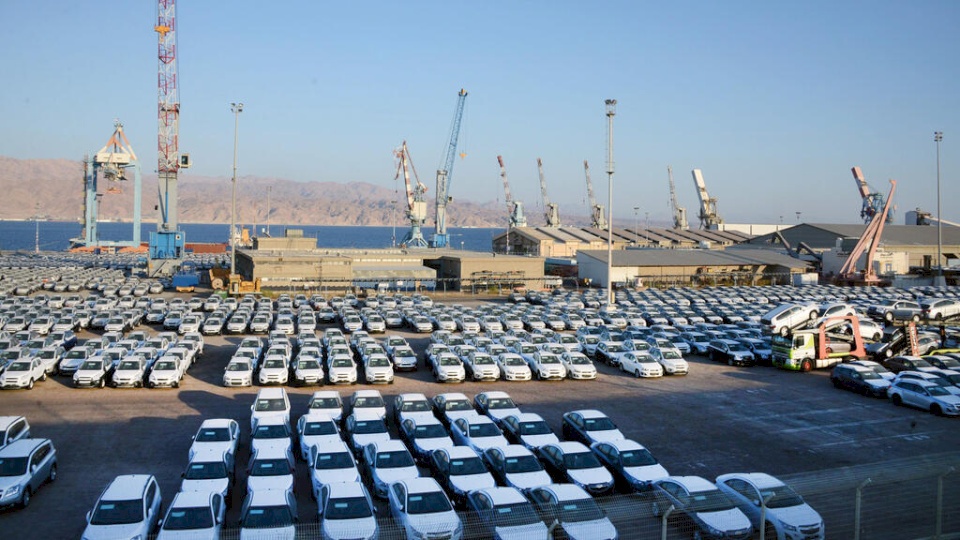
The Electric Car Market in Israel Sees a Sharp Decline This Year
Translation by SadaNews Economy - From electric cars overheating under the sun in showrooms, to the collapse of Chinese luxury car brands, and the change of dealers on the way, the report published last week shows the shocking picture of the electric car market in Israel, where the sector is experiencing an unprecedented crisis, according to the Hebrew site Calcalist, translated by SadaNews.
The newspaper noted that according to the report published by the Association of Automobile Importers, fleet car sales remain strong, while Chinese cars dominate the market, and discounts continue to spread. However, it cannot be denied that "annual sales of electric cars in Israel have seen a significant decline."
The market share of electric cars has dropped this year from 25% to 16%, a decrease more severe than it may seem at first glance. In reality, last year's sales were related to electric cars sold to real customers who are already using the cars, while this year, reports indicate that many electric cars sold are being stored in showrooms and warehouses across the country, suggesting that the actual sales figures may be lower than what is reported, according to the newspaper.
Increase in Offers and Discounts
As the electric car market enters a phase of "oversupply," analysts expect an increase in offers and discounts, as the installation of charging stations and the provision of fast charging stations remain key challenges that may hinder the purchasing decision. Therefore, promotional offers on electric cars are likely to continue, as car importers seek to "sell all they can sell" to avoid a major market downturn.
Lack of Distinction Among Chinese Brands
The newspaper added, "It is worth noting that none of the Chinese companies has a clear advantage or superiority over its competitors, as all cars offer almost the same specifications such as large screens and other similar features. The companies that achieve greater success in the market are those that rely primarily on marketing and branding efforts, such as 'ZEEKR,' 'XPeng,' and 'BYD.' While, in terms of actual performance, these companies' cars do not outperform others."
Popular Cars Are No Guarantee for Success
Even major companies like BYD are seeing a decline in sales. Although it offers a diverse range of electric cars including mini cars, SUVs, and competition for the Tesla Model 3, its sales figures are not what they were last year. This might lead dealers to consider a new strategy involving the import of luxury models instead of popular cars, as electric vehicles in the luxury market are selling better, as translated by SadaNews from Calcalist.
Chinese luxury cars find no place in the market.
Despite attempts by Chinese companies to market their luxury cars in Israel, sales have not achieved the expected success. Cars like "Hongqi" and "Wey" are struggling to sell units exceeding a quarter million shekels, proving that the Israeli market has yet to embrace the idea of luxury Chinese cars. Customers in this segment know very well what "quality" is and prefer traditional brands like Mercedes or BMW.
Challenges Facing Dealers in Israel
The report indicated that car dealers in Israel face significant difficulties, as many of them still sell cars that have been cleared from customs for months, especially those who did not achieve good sales in the first half of the year. Manufacturers may demand these dealers explain the sales decline, creating substantial pressure on the relationships between dealers and manufacturers. If the situation continues as it is, the landscape may change significantly, with a possibility of changes in dealers or even a change of the dealer itself.

The Problem of Shekel Overcrowding Worsens.. Fuel Station Owners Threatened with Closure o...

The Palestinian Economy at a Crossroads: 4 Files Awaiting Resolution

Gold Falls Amid Bets on Tightening Monetary Policy

Revealing the Travel Costs of the Israeli Minister of Economy for 2025

Currency Exchange Rates Against the Shekel (January 30)

Currency Exchange Rates Against the Shekel on Thursday (January 29)

Knesset Approves 2026 Budget in First Reading
